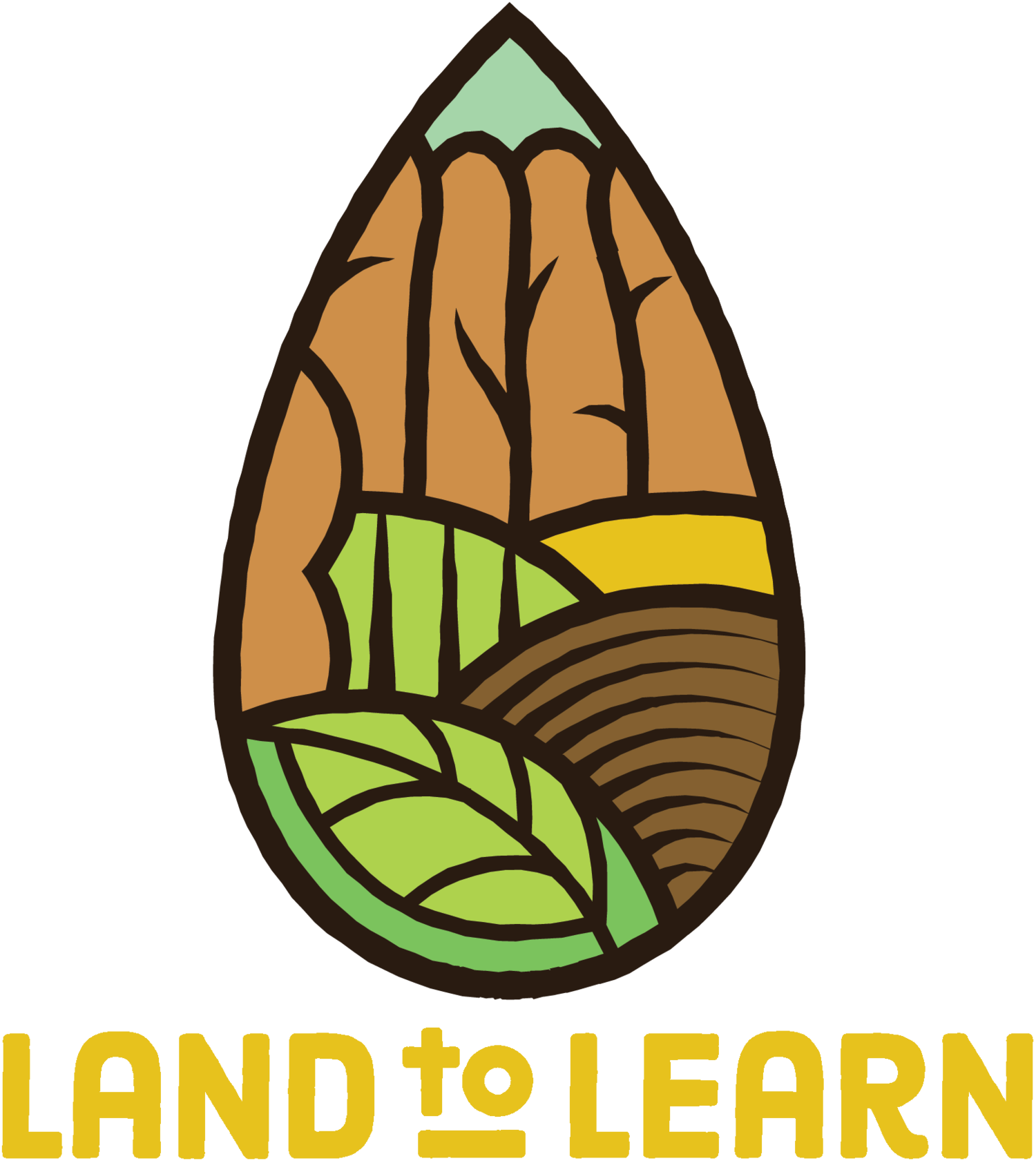At Land to Learn, we see our mission as dual-pronged, and highly interconnected. Food justice is community justice, and vice versa. Our work has proven that the benefits of garden-based education extend beyond learning subjects like art, math, reading and writing, science, nutrition, and social studies. Students develop a personal relationship with their food by growing it themselves at their school, and sometimes even take their newfound passion for fresh food and grow it into lasting, meaningful change in their communities.
Food justice grows each time a LtL educator steps into the classroom or school garden to teach a young person how to grow their own food and develop their food literacy. Understanding where food comes from, learning about the food system, and learning how to grow food oneself are powerful tools that call students into the movement towards food justice. A generation of students that love fresh vegetables and have the skills to feed themselves builds community wellness from the ground up. Teaching these tools to young people helps build a local food culture committed to fresh and nutritious food. Our flagship in-school program, SproutEd, engages students in gardening and helps them build skills and confidence as a grower and eater. Students plant seeds, water and tend to their plants, and harvest and eat them fresh from the garden. They try dozens of fruits and vegetables over the years of the program, from arugula to zucchini, many of which they helped grow with their own hands. They discover that they love tomatoes, but maybe don’t care much for beets. Some of these students will develop a passion for vegetables, and some will develop a passion for growing them. One student in Newburgh went from hating kale to putting it in her daily breakfast smoothie that she made with her mom. This same family went on to maintain a plot at a local community garden in Newburgh for many years.
Community wellness stems from students growing and eating the bounty from the school gardens, and sharing their knowledge and skills with their family, friends, and neighbors. Maybe they discover they love kale or spinach or cilantro and ask their families to buy it for them. Maybe they start a garden at home or join a community garden to grow their favorite veggies for themselves. Or they will build a brand new community garden in their city, which is what happened in the summer of 2020. Some enterprising teenagers took the skills and knowledge gained from their summer apprenticeship with Land to Learn and our community partner, Our Core, to start a brand new community garden located in front of the Newburgh Free Library, and a lending seed library within the library itself. Any citizen of Newburgh can now maintain a plot at the new garden on Grand St and any library patron can check out hundreds of varieties of seeds for free.
Our mission is to empower all our program participants to do the same. To grow a movement for food justice and community wellness through garden-based education.
- Sam Adels Co-Director
